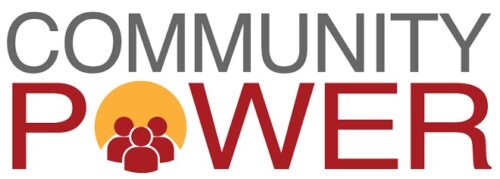The Challenge
In the wake of Superstorm Sandy, WE ACT for Environmental Justice (WE ACT) worked with community members to develop a Northern Manhattan Climate Action plan. The plan identified the need for energy independence as a priority in Northern Manhattan, and specifically for alternatives to the fossil fuel power being offered by existing utilities.
Low-income communities and communities of color, like those found in Northern Manhattan, are disproportionately impacted by air pollution and greenhouse gases produced by burning fossil fuels. A study found that air pollution contributed to at least 2,700 premature deaths annually in New York City, and studies show that people of color are suffering a disproportionate impact. Air pollution also proved to be a key factor in COVID-19 mortality rates, which also impacts communities of color disproportionately.
Solar Power is a renewable source of energy that helps reduce air pollution and greenhouse gas emissions. However, as we learned, there are a number of potential barriers to solar power in New York City. This is particularly true in the neighborhoods of Northern Manhattan, where high costs, limited roof space, and the fact that renters typically have little say in the decision-making process were the most common obstacles we encountered.
To overcome these challenges, WE ACT partnered with Solar One and the Urban Homesteading Assistance Board to launch Solar Uptown Now (SUN) in 2016. SUN targeted Housing Development Fund Corporation (HDFC) cooperatives for solar installations because they make up the bulk of New York City multi-family affordable housing that is owned by the occupant, which means the residents typically have a say in their energy choices, and there is a high density of these buildings in Northern Manhattan. In addition, we trained local residents to do the actual installations, creating green jobs for the community.
As of March 2020, SUN has installed solar panels on the roofs of 11 HDFC buildings in Northern Manhattan, annually producing 415 KW-DC of renewable energy while avoiding 802 pounds of nitrogen oxide, a leading source air pollution and a contributor to global warming. The program also provided significant cost savings for building residents and created six good, green jobs for members of the community.
But expanding solar beyond this growing list of HDFCs and a handful of privately owned residences remained a challenge. To address the need for energy independence in Northern Manhattan, an alternative approach was needed.
The Solution
Looking to explore community solar, in which one rooftop installation offsets the energy costs of anyone in the neighborhood willing to join a community solar cooperative, WE ACT partnered with Solar One, the New York City Community Energy Cooperative, Brooklyn Movement Center, Green City Force, and Con Edison to establish Community Power in 2019.
Community Power is a partnership that is installing solar panels on the roofs of buildings in three New York City Housing Authority (NYCHA) developments: Carver Houses in Northern Manhattan’s East Harlem and Glenwood Houses and Kingsborough Houses in Brooklyn. Once completed, the installations will generate 1.2 MW-DC of community solar from panels installed on the roofs of 40 residential buildings across the three developments.
Nearby Con Edison customers living in low- to moderate-income housing will be able to join the New York City Community Energy Cooperative and enjoy savings on their electricity bills while helping to reduce greenhouse gas emissions. Members of the New York City Community Energy Cooperative will receive monthly solar credits, which they can use to reduce their electricity bill by as much as 15 percent each month.
While residents of those NYCHA developments are not allowed to participate in the program due to NYCHA regulations, WE ACT and Green City Force are recruiting unemployed and underemployed tenants from those developments to do the solar installations. Successful applicants will be able to earn their 30-hour OSHA certificate and become certified solar installers – free of charge – opening the door for a career in the solar industry.
Community Power is providing this free job training to 30 NYCHA residents. And the contracted installer for the program, Accord Power, has committed to hiring at least 15 apprentices from those trainees to work on the solar installations at all three sites.
Despite setbacks due to the COVID-19 pandemic, Community Power has already begun recruiting job training applicants and reaching out to low- to moderate-income residents in the surrounding neighborhoods to join the solar cooperative. By early 2021, when the installations are expected to be operational, members will begin to see money-saving solar credits on their monthly Con Edison bills.
